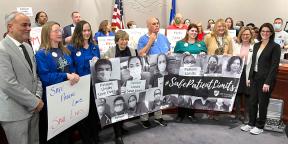In AFT President Randi Weingarten’s latest New York Times column, she describes what it is exactly that unions do. Though unions are the most popular they have been in decades, anti-union sentiment still thrives in red states and across the nation. “Several years ago, The Atlantic ran a story whose headline made even me, a labor leader, scratch my head: ‘Union Membership: Very Sexy,’” Weingarten writes in the column. “The gist was that higher wages, health benefits and job security—all associated with union membership—boost one’s chances of getting married. Belonging to a union doesn’t actually guarantee happily ever after, but it does help working people have a better life in the here and now.” Click through to read the full column.

